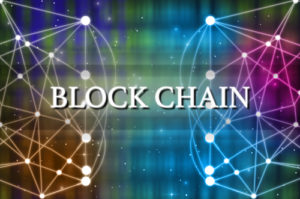Special to the Financial Independence Hub
If you are like 99.9% of Canadians, you are probably wondering what this crypto-thing is all about. Your stream of consciousness likely goes something like this: What is Bitcoin? And what the heck is Ether? Will they change my life? How can I make money on it? Could I lose money on it? What….?”
Allow me to open the secret door a crack for you.
At this moment in time, the early adopters are cleaning up. They saw the potential of Bitcoin and Ether, and bought it when it was cheap. Now they are sitting on a pile of value, much like Amazon investors who bought at the IPO price of $16.00 in 1997 – except they have only seen a 64-times growth, to $1,010 today. The cab driver in Calgary who took Bitcoin for a $5 fare a few years ago years ago is reportedly now a multimillionaire.
There is still money to be made, however, which is why you are seeing somewhat self-serving forecasts by service providers and pundits, of Bitcoin and Ether in particular hitting $20,000 and more. That could happen, but so could Dow at 100,000, and as most of us know, the road to that particular Nirvana is full of potholes and unexpected dips and swerves.
Cryptocurrencies are not “securities”
Importantly, cryptocurrencies are not “securities” and do not appear to fall under the rules of most of the Western regulatory system that governs the sale of securities. That of course would appear to free this new highly valuable (and growing) form of electronic money from the constraints faced by “unaccredited” investors. Right now, if you want to buy a piece of a private company, you cannot buy their securities from a financial intermediary unless you meet the extremely high bar set by the regulators.
But a cryptocurrency is not a security – it is more like a product, or a commodity, like a car, or an ounce of gold. You will get no share or debt of a private company when you buy their cryptocurrency, only what the market in general – others like you – value it at. And that will depend – much like Google and Amazon – how much usage and traction the cryptocurrency receives through all the modern social channels.
Now we are watching the market evolve into something with a lot more value-added. The mysterious “blockchain” is simply an internet-based secure transaction system between two parties. Bitcoin, for which the first crude blockchain was invented, quickly got a reputation for facilitating drug deals and other shady stuff. But much like pornography was the first major commercial internet application, it was natural that the big (often dirty) money would be focused on human foibles.
Blockchain and offshoots going mainstream
However, more sophisticated and open applications are bringing the blockchain and all of its offshoots into the mainstream, where users like you and I can participate in it with less and less effort. It is without question advancing much more rapidly than the internet did: I would estimate at least 10 times faster!
The blockchain promises to cut out the financial middleman (banks, credit-card companies, Paypal) for everyone, dramatically reducing transaction fees and eliminating bank bureaucracy. But many see the big upside as increasing speed, security and accuracy of everything from getting through customs to taking out a mortgage on (or buying) a house! Something called “smart contracts” – automatically executing sets of clear instructions – will reduce the need for multiple lawyers, accountants, auditors and every other professional service, and thus increase speed and lower the cost of transactions. The term “all good” certainly applies to the blockchain and smart contracts.
There has been a collective OMG moment (to put it politely), and a tsunami of interest on the part of banks, governments and other intermediaries to get on the train before smarter and faster entrepreneurs leave the station with the crown jewels. Right now the banks have money and influence on their side, but before very long the blockchain entrepreneurs will catch up financially, leaving their traditional competitors who don’t adapt quickly enough in their dust. Amazon has left the shopping mall for dead, and the blockchain entrepreneurs will do the same for traditional financial and legal services : make absolutely no mistake about that!
Shift from Old Economy stocks to Ether
So, to answer the question I posed in the title, “what am I supposed to do?” … my first recommendation would be to replace as much of your old economy stocks as you are comfortable doing, (particularly resource-and fossil fuel based ones) with Ether. This is the cryptocurrency offering of Ethereum, the Canadian based brainchild of the blockchain’s number one “blockgeek” Vitalik Buterin. Its blockchain offers a whole open source (i.e. free and collaborative) platform for implementing the “smart contracts” referred to above, which will change our world. If Amazon was the major success story of “Internet 2.0” then Ethereum is the 800-pound gorilla of Internet 3.0.
To add fuel to the fire, the recent announcement of the “Bancor Protocol” promises to create a market, and full liquidity, for hundreds — and even thousands –- of “smart tokens.” These are equivalent to “tickets” for their products and services, once they are brought to market. Bancor automatically “makes a market” for coins and tokens, allowing them to rise or fall in value, but always be exchangeable for more traditional value – fiat currency or other more established (and thus stable value) cryptocurrencies.
The benefit and beauty of smart tokens is that they provide key funding for the development of niche services and products that appeal to certain groups, and they are not constrained by the accredited investor rules. Similarly to shares of a private company, but much more liquid, and easier to acquire, they reward those who buy the token or currency of a rising star in any industry — mostly blockchain related for now — whose coin becomes part of the cryptocurrency firmament.
My second recommendation is to watch a sector you have a particular interest or belief in. If a well-run company with a great product or service in that space offers a smart token that you believe could be a winner — much like picking stocks, but much with much broader choice, as you are not limited to public companies –- then consider taking the plunge.
Do your research
Thirdly, I would warn against making large very purchases of any cryptocurrency or smart token (other than Ether) without doing your research. A small flier on a promising coin or token, buying more and averaging up if it then proceeds to meet your hopes and expectations, is both exciting and relatively low risk.
You will learn how to use an electronic wallet to receive and send cryptocurrencies and fiat currencies, right on your smartphone, tablet or laptop, the first step in any coin or token transaction. And like your Google searches and Amazon purchases – you’ll never look back.
 Tony Humble is a former mortgage columnist for the Financial Post, cofounder or Northwood Mortgage, and an an internet pioneer. He was a co-founder of Basis 100, the developer of the “software as a service” that is now used to approve billions of mortgage transactions annually. Tony is also a co-founder of xCoin Prospernet, a new cryptocurrency that is designed to maximize prosperity at the community level across the globe. You can contact Tony at tony.humble@xcoin.ca, or visit the website at www.xcoin.ca.
Tony Humble is a former mortgage columnist for the Financial Post, cofounder or Northwood Mortgage, and an an internet pioneer. He was a co-founder of Basis 100, the developer of the “software as a service” that is now used to approve billions of mortgage transactions annually. Tony is also a co-founder of xCoin Prospernet, a new cryptocurrency that is designed to maximize prosperity at the community level across the globe. You can contact Tony at tony.humble@xcoin.ca, or visit the website at www.xcoin.ca.




curious column – more of a advertorial I think
I was actually hoping it would be seen as a wee bit controversial, especially by bankers (i’m a retired one) and generate some comments, but yes, I’m for sustainable technology (that’s the main business I’m active in) so never miss a chance to advocate divestiture of fossil fuel stocks. I’m new to the blogosphere (last published writing was for Financial Post on mortgages) so I welcome specific criticisms of style that I could improve in this medium. Thanks for your comment.
TH